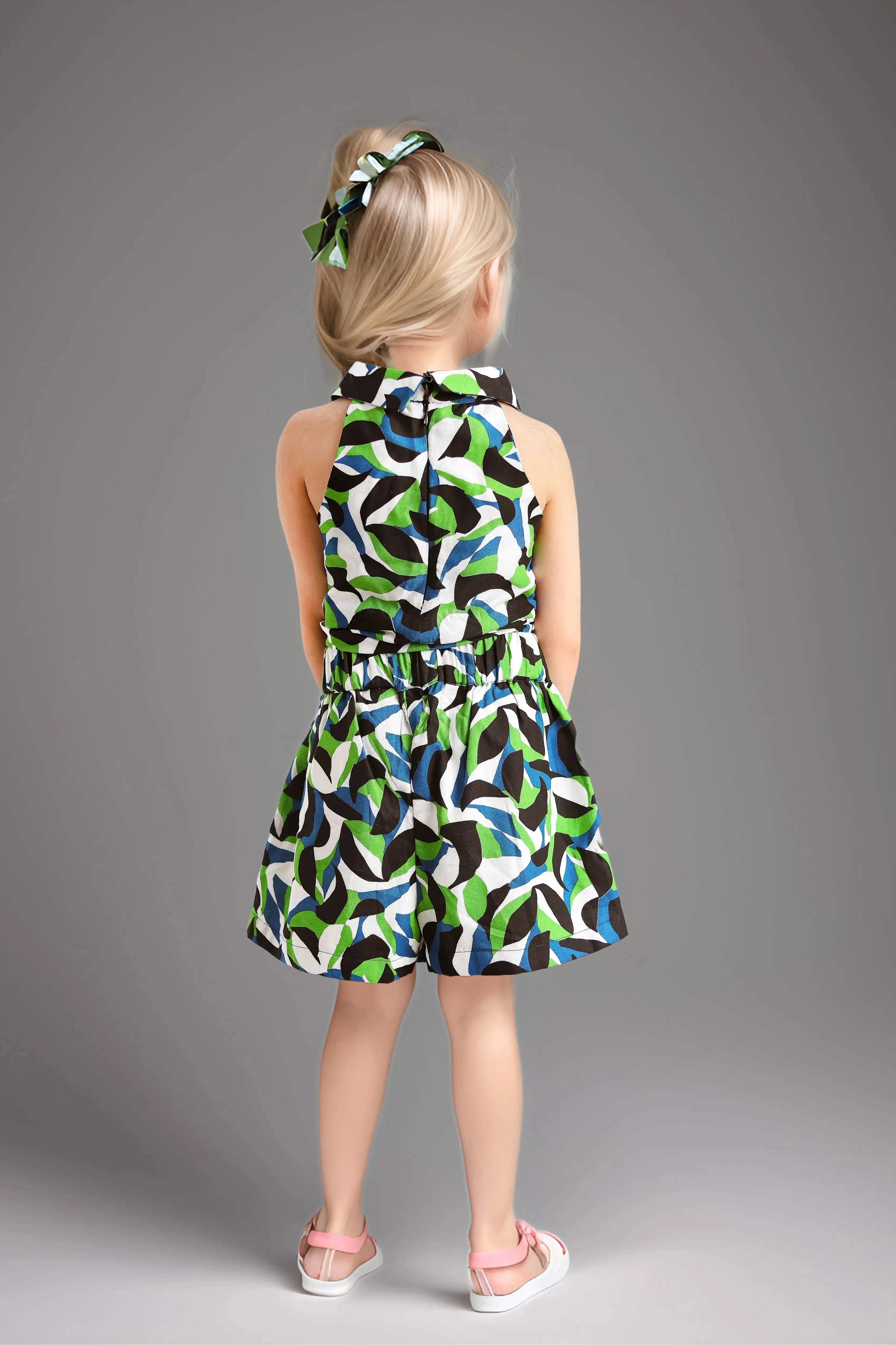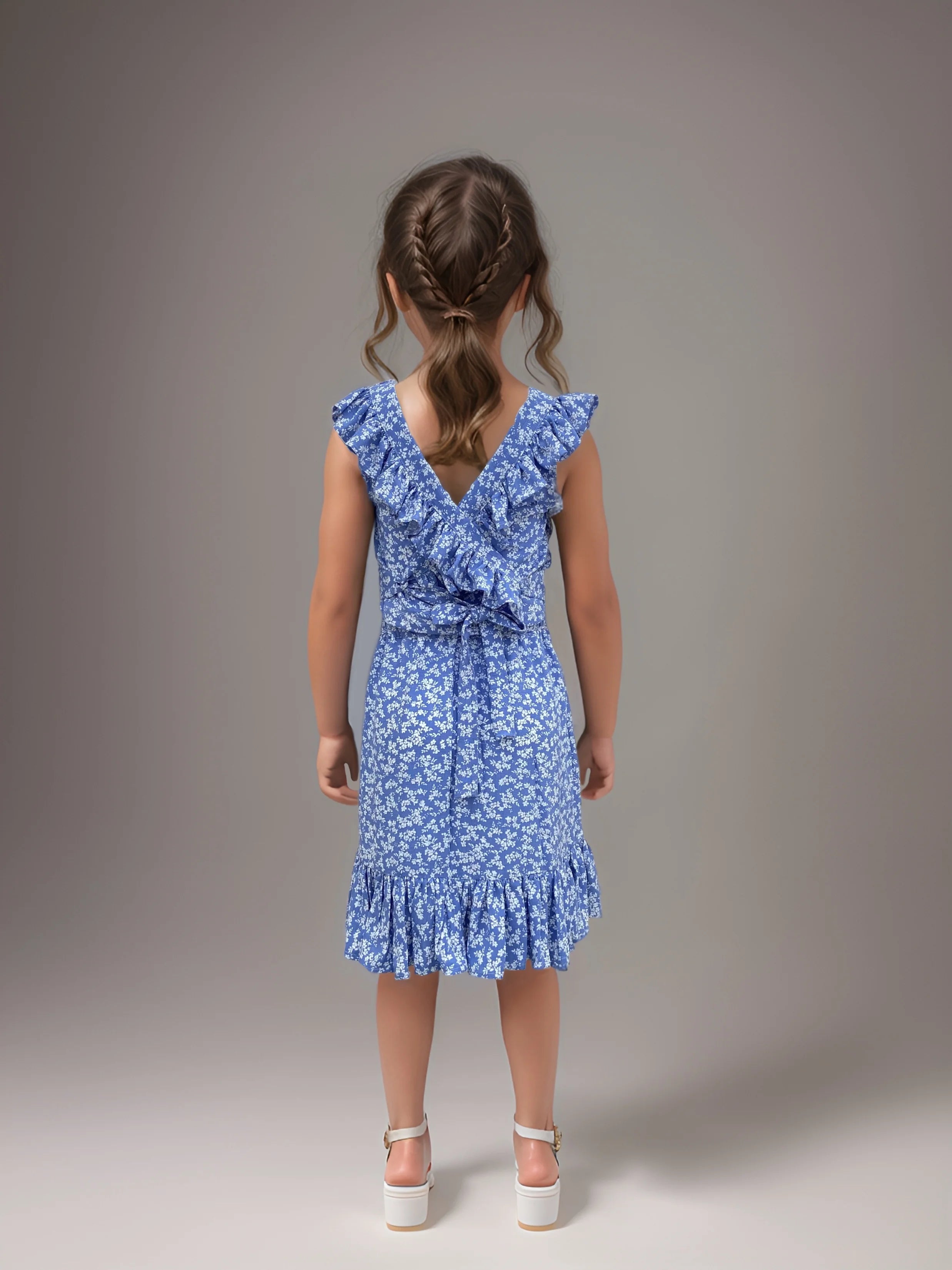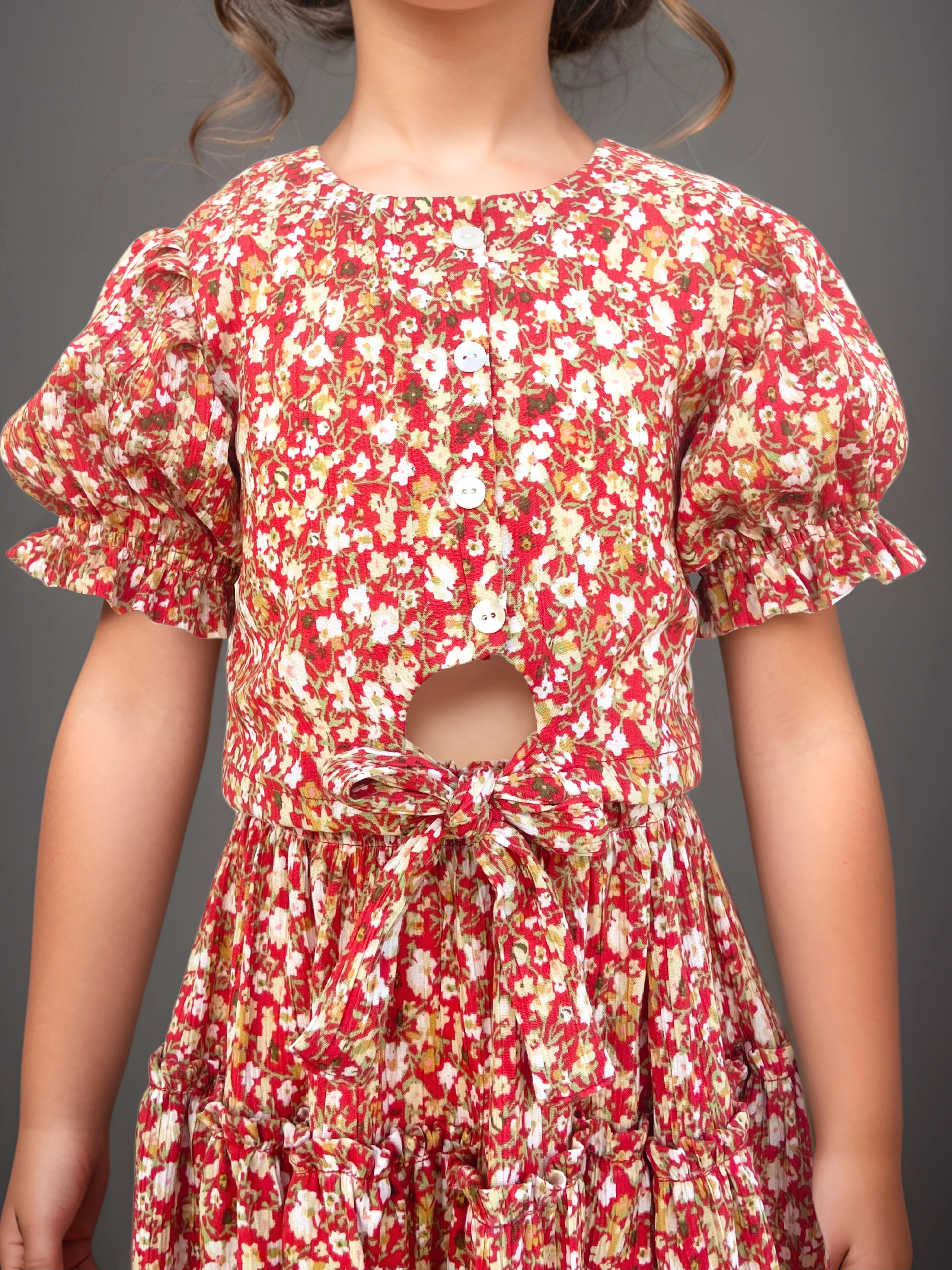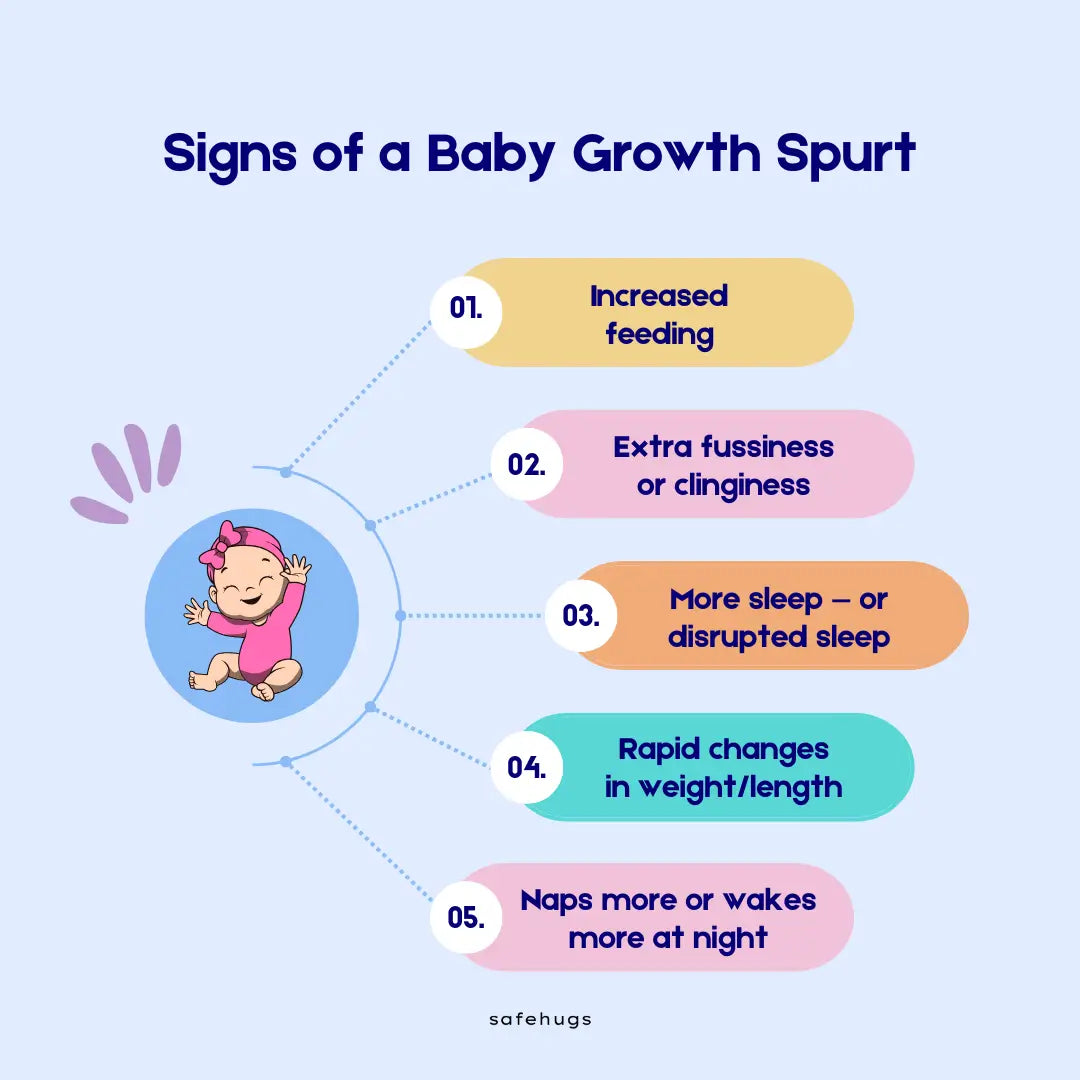Baby Teething Symptoms & Natural Remedies
Table of Contents
- What is Teething?
- When Does Teething Start?
- Baby Teething Stages & Tooth Eruption Order
- Teething Symptoms: What to Expect
- How Long Does Teething Last?
- What If Teeth Come Late?
- Teething Pain Relief & Soothing Tips
- What to Avoid During Teething
- When to See a Pediatrician
- Caring for Your Baby's New Teeth
- Conclusion
- FAQs
Teething usually begins around 6 months of age, though it can start as early as 3 months or as late as 12. The signs? Excess drooling, biting everything in sight, crankiness, and a sudden dislike for feeding. It’s confusing, exhausting and very normal.
But what most baby books don't tell you is how different this journey looks for each family. Some parents swear by silicone teethers, others turn to cold fruits, while some rely on gentle homeopathy remedies passed down generations. That's why this isn't just another clinical guide, it's built with real stories from moms, plus expert-backed info you can trust.
"It's not just about teeth, it's about the tiny, daily discomforts that make babies clingier, fussier, and harder to soothe. Teething affects the whole household." - Dr. Meera Karthik, Pediatrician & Mom of 2
Do You Know? Over 70% of Indian moms in urban households reported that teething disrupted their baby's sleep patterns for more than two weeks.
What You'll Learn in This Blog
- When teething really starts (and why it sometimes comes late)
- The order of baby teeth and why molars are a beast of their own
- Signs it's teething, not something else (like an ear infection)
- Real tips from our Mom Insider Community to soothe pain naturally
- Safe remedies, what to avoid, and when to call your pediatrician
- How teething affects feeding, sleep, and even bonding time
What is Teething?

Teething is the process of your baby's teeth pushing through the gums, also called tooth eruption. It's a natural developmental milestone, but one that comes with its share of discomfort.
While it might feel like something's wrong when your baby is fussy, has swollen gums, or refuses to eat, it's often just their body doing what it's meant to do.
Key facts about teething:
- It typically begins between 4 to 7 months, but it's normal for some babies to start earlier or later.
- The first teeth to appear are usually the lower front ones (central incisors).
- Most children will have a full set of 20 baby teeth by the age of 3.
Glossary :
- Tooth eruption - The process by which a tooth breaks through the gum line.
- Teething syndrome - A cluster of symptoms like drooling, irritability, and gum swelling, commonly observed during teething.
"Teething is not a disease - it's a transition. But that doesn't mean it's easy. A calm, prepared parent makes all the difference." - Dr. Kiran Shah, Pediatric Dentist
How to Tell It's Teething (Not Illness) :
- Gums are swollen or tender
- Increased drooling
- Baby keeps chewing on hands, toys, or clothes
- More clingy or irritable than usual
- Mild temperature rise (not a true fever)
When Does Teething Start?
Most babies begin teething between 4 to 7 months, but some start earlier, while others may not get their first tooth until after their first birthday. And that's completely normal.
Typical timeline:
- 0–6 months: Teeth are forming beneath the gums.
- 4–7 months: First visible teeth begin to emerge (usually lower central incisors).
- 8–12 months: Top front teeth follow.
- By age 3: Most children have all 20 primary teeth.
According to the American Academy of Pediatrics, 1 in 2000 babies is born with a tooth - called a natal tooth.
Calcarea phos homeo was suggested by Warinika from our Mom Insider group when her baby began teething early. Another popular remedy in our community is SBL's homeopathic calcium drops, especially during the early months.
Glossary:
Natal teeth - Teeth present at birth.
Primary teeth - Also known as milk teeth or baby teeth; the first set of teeth.
Baby Teething Stages & Tooth Eruption Order
Teething doesn't happen all at once. It's a gradual process that unfolds in predictable stages, though every baby's timeline may vary slightly.
Teething Stages by Age

- Stage 1: 0–6 months
Teeth are developing beneath the gums. No visible signs yet. - Stage 2: 6–8 months
Lower central incisors appear first, followed by upper central incisors. - Stage 3: 8–12 months
Upper and lower lateral incisors emerge. Your baby now has four to eight teeth. - Stage 4: 9–16 months
First molars begin to erupt. These are larger and can cause more discomfort. - Stage 5: 12–18 months
Canines (pointy teeth) come in, helping your baby bite and tear food. - Stage 6: 16–22 months
Second molars emerge, typically more painful than previous stages. - Stage 7: 22–33 months
Final molars arrive. By age 3, most children have a full set of 20 baby teeth.
Mom Insight :
Shambhavi from our Mom Insider community recommends trying a variety of teethers, including neem wood, soft fabrics, and using your clean fin in ger, to help your baby through these stages. Marzia's recommendation of silicone teethers also received a lot of positive feedback.
Tip: If your baby seems extra irritable or suddenly refuses food during these stages, it's often linked to molar eruption. Offering cold foods like chilled fruits or safe teething toys can provide relief.
Teething Symptoms: What to Expect
Babies can't tell us what's wrong but teething often makes them show it. While teething symptoms vary, there are a few telltale signs parents can look out for.

Common Symptoms of Teething
- Excessive drooling
- Irritability or fussiness
- Swollen, tender gums
- Chewing on fingers, toys, or anything they can find
- Trouble sleeping
- Decreased appetite
- Mild temperature rise (not high fever)
What's Not Teething?
Many parents worry when teething overlaps with other symptoms, but high fever, vomiting, or diarrhea are not typical signs of teething and should be checked by a pediatrician.
Mom Insight :
Shubhangi from our Mom Insider community reminds fellow parents: avoid applying honey on the gums, no matter how harmless it may seem. It can pose a risk of infant botulism and isn’t recommended under 1 year of age.
Glossary :
Teething Rash: A mild irritation around the mouth and chin caused by constant drooling. Gently wiping and applying a light barrier cream can help.
How Long Does Teething Last?
Teething can last for more than a year, starting as early as 4-6 months and continuing until about 24-33 months, when the second molars come in. But the discomfort usually comes in phases, lasting just a few days to a week at a time - typically around the time a new tooth is about to break through.
Timeline of a Typical Teething Phase
- Pre-teething discomfort: 3-5 days before the tooth erupts
- Eruption day: The most uncomfortable day
- Relief period: Symptoms ease once the tooth emerges
What Parents Often Miss
Sometimes, symptoms like biting or waking up at night might appear weeks before a tooth shows. It’s not "just a bad habit" - it could be teething.
Mom Insight :
Vrinda from our Mom Insider community suggests trying Reckeweg homeopathy drops to manage prolonged teething discomfort. While some parents find this helpful, always check with a pediatrician before introducing any new remedy.
Important Note
If your child seems to be teething constantly with no visible tooth for months, or seems unusually distressed, consult a pediatrician to rule out other causes.
What If Teeth Come Late?
It's completely normal for babies to start teething at different ages. While many begin between 4-7 months, some babies don't cut their first tooth until 12 months or later and that's okay.
When Is Late Teething a Concern?
Delayed teething isn't usually a sign of a problem. But you may want to consult a pediatrician if your baby:
- Has no teeth by 18 months
- Shows other signs of delayed development
- Has a family history of late teething or dental issues
What Can Cause Delayed Teething?
- Genetics - If parents teethed late, baby might too
- Premature birth or low birth weight
- Nutritional deficiencies, especially calcium or vitamin D
- Underlying health conditions (rare)
Mom Insight:
Shweta from our community shared that SBL's homeopathic calcium supplement helped her baby during late teething. It's a gentle option many parents consider, but always run it by your doctor first.
Expert Tip :
Dr. Radhika Iyer, Pediatric Dentist: "Late teething isn't dangerous on its own. But keeping your baby's nutrition balanced, especially calcium and vitamin D can help ensure healthy dental development."
Teething Pain Relief & Soothing Tips
Teething can make your baby uncomfortable, and as a parent, it's tough to watch your little one go through it. Luckily, there are plenty of ways to ease the discomfort and help your baby feel better.
Natural Remedies
- Cold Washcloth or Teething Ring: Soak a clean washcloth in water, then chill it in the fridge. When your baby chews on it, the cold can help numb their gums. Similarly, chilled silicone teethers work wonders too.
- Frozen Fruits: For babies who have started solids, offer small pieces of chilled fruit (like watermelon or apple slices) for them to suck on. This not only cools their gums but also introduces new flavors.
- Breastfeeding: Breast milk has natural soothing properties. If your baby is breastfeeding, offer extra feeds as the comfort and familiarity of nursing can help them feel secure and calm.
What About Over-the-Counter Solutions?
- Pain Relief Gels (Use Sparingly): While some parents opt for teething gels, always check the ingredients. Avoid those with benzocaine, as it's not recommended for babies under 2 years. Always ask your pediatrician for the safest options.
- Acetaminophen or Ibuprofen: For extreme pain, a small dose of acetaminophen (Tylenol) or ibuprofen (Advil) can provide relief. Always follow your pediatrician's guidelines and dosing instructions.
Things to Avoid:
- Teething Necklaces - These can be a choking hazard and pose a serious risk.
- Amber Beads - Despite their popularity, these don't have proven benefits and can be dangerous if the baby chews on them.
Expert Tip:
Dr. Anjali Shah, Pediatrician: "Always be mindful of what your baby chews on. Natural remedies like cold washcloths are the safest, but if your baby is in significant pain, consult your doctor about appropriate pain relief."
What to Avoid During Teething
While teething is a natural process, there are a few things you should definitely steer clear of to keep your baby safe and comfortable.
1. Teething Gels with Benzocaine
Teething gels that contain benzocaine should be avoided at all costs. The FDA has issued warnings about these products for babies under 2 years old. Benzocaine can cause a rare but serious condition called methemoglobinemia, which reduces the amount of oxygen in the blood and can be life-threatening.
2. Teething Necklaces and Bracelets
Although teething necklaces are marketed as soothing, they pose a serious choking and strangulation hazard. Many of these products are made with small parts that can break off, leading to potential dangers for your baby. Always choose a teether that is designed to be chewed on and is free of loose parts.
3. Hard Foods or Unsupervised Finger Foods
Hard foods like carrots, nuts, or large chunks of fruit can pose a choking risk, especially for babies under 12 months who might not be able to chew them properly. While some parents offer these for teething relief, always ensure that the food is soft, cut into small pieces, and supervised during the feeding process.
4. Teething Tablets
Homeopathic teething tablets have been widely available, but some brands have been recalled due to safety concerns. They may contain dangerous levels of certain ingredients or have been linked to serious side effects, including seizures. Always check for any FDA warnings before using such products.
What's Safe to Use?:
- Teething Rings: Always choose BPA-free, non-toxic silicone teething rings.
- Cold Washcloth: A chilled, clean cloth is safe for your baby to chew on.
- Breastfeeding: If your baby is breastfeeding, let them nurse for comfort.
Monica from our Mom Insider community shares: "Teething puffs were a life-saver when my baby was just starting solids. They were easy to grip and gentle on his gums."
When to See a Pediatrician
Most babies sail through teething with a bit of fussiness, drool, and the occasional sleepless night. But sometimes, teething symptoms can overlap with other health issues, so it's important to know when to seek professional help.
Signs That It's More Than Just Teething
While mild discomfort, gum swelling, and increased drooling are common, you should consult your pediatrician if your baby shows any of the following signs:
- High fever over 100.4°F (38°C)
- Diarrhea lasting more than a day
- Vomiting
- Ear pulling that doesn't stop or is paired with a fever (could be an ear infection)
- Rashes on other parts of the body (beyond mild facial drool rash)
- Extreme irritability or crying that can't be soothed
- Lack of appetite for over 24 hours
- White patches in the mouth or on the tongue (could indicate oral thrush)
Mom Insight :
Shubhangi from our mom community warns: "I once applied honey on my baby's gums because an elder suggested it, but later I found out it's unsafe for babies under 1. Never use honey, It can lead to infant botulism."
Glossary :
Infant botulism - It is a rare but serious illness caused by a toxin that attacks the body's nerves. Babies under 12 months should never be given honey, even in tiny amounts.
"Teething can be tough, but don't write off every symptom as 'just teething'. Trust your gut and reach out to your doctor when something feels off." - Dr. Meenal Rao, Pediatric Consultant
Caring for Your Baby's New Teeth
Teething is just the beginning, once those tiny pearly whites start appearing, it's time to build a healthy dental care routine. Even though baby teeth eventually fall out, caring for them is essential to your child's long-term oral health.
Why Baby Teeth Matter
- They help babies chew properly and transition to solids.
- They play a key role in speech development.
- They act as placeholders for adult teeth, guiding proper alignment.
How to Clean Baby Teeth
Start simple and gentle:
- Before teeth erupt: Wipe your baby's gums with a clean, damp cloth after feeding.
- Once teeth appear: Use a baby toothbrush with soft bristles and water. No toothpaste is needed until 18 months (unless advised by your doctor).
- At 18 months, you can use a rice-grain-sized amount of fluoride toothpaste.
- Brush twice a day, especially before bedtime.
When to Start Dental Visits
The Indian Dental Association and AAPD recommend: "Take your baby to the dentist within six months of the first tooth appearing or by their first birthday."
Early visits help catch any issues and get your child used to dental care routines.
Shweta from our mom circle shared: I started brushing my baby's teeth as soon as the first one popped out, but I didn't know how to choose the right toothbrush. Our pediatrician recommended one with a wide, non-slip handle and extra-soft bristles, it made brushing easier for both of us!"
Choosing the Right Baby Toothbrus:
- Soft, rounded bristles
- Small head for little mouths
- Wide handle for grip
- BPA-free and safe materials
Conclusion
Teething can be a tough phase, for both babies and parents. But knowing what to expect, how to soothe your little one, and when to seek help can make all the difference. Every baby is different: some breeze through teething, while others struggle. What matters most is that you're present, patient, and prepared.
Trust your instincts, lean on your parenting village, and remember - this phase, like all others, will pass.
Related:
- Check out our blog on Milk bleb treatment.
- Check out our blog on Pacifier for Newborn - Good or Bad? Everything Parents Need to Know.
- Check out our blog on Colic in Babies: How to Prevent and Soothe Safely.
- Check out our blog on Vaccination Schedule in India for Kids.
- Check out our blog on Top WhatsApp Groups for Moms in India.
- Check out our blog on Top 10 Parenting Blogs in India.
FAQ'S
1. What are the first signs of teething?
Drooling, irritability, gum swelling, chewing on objects, and sleep disruptions are common early signs.
2. How long do teething symptoms last?
Teething symptoms can last from a few days to over a week per tooth, depending on the baby.
3. When do babies start teething?
Most babies start teething between 4 and 7 months, though it can vary.
4. What helps soothe teething pain fast?
Cold teething rings, gentle gum massage, silicone BPA-free teethers, and offering cold fruits like cucumber or banana slices (under supervision) help soothe sore gums.
5. Can teething cause fever or diarrhea?
Teething may cause a slight rise in temperature, but high fever or diarrhea is not a direct symptom and should be evaluated by a doctor.
6. Are teething toys good for babies?
Yes, when chosen carefully. Opt for BPA-free silicone, natural rubber, or neem wood teethers.
7. What teething toys are safe for babies?
Look for FDA-approved materials like BPA-free silicone or natural wood. Avoid teething necklaces or gels containing benzocaine.


































